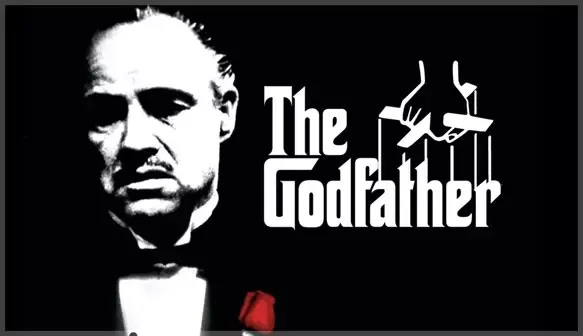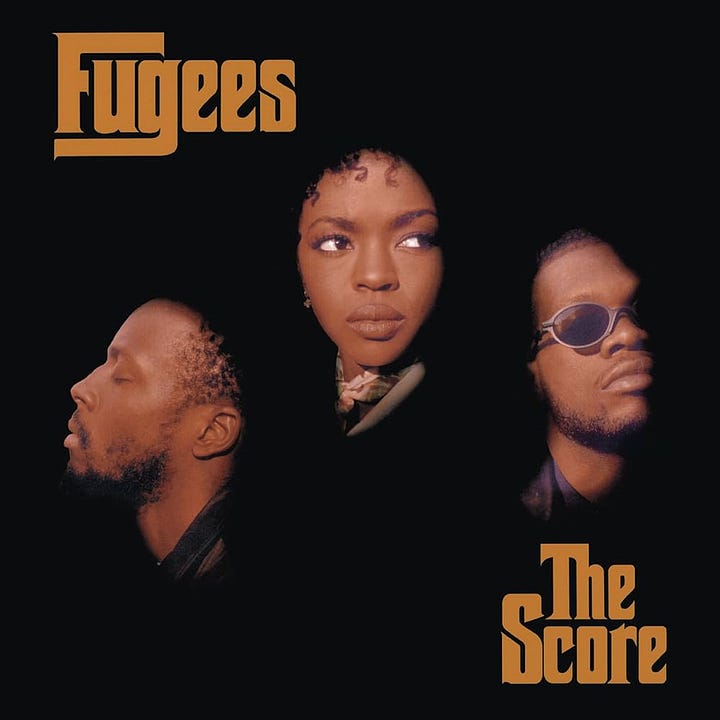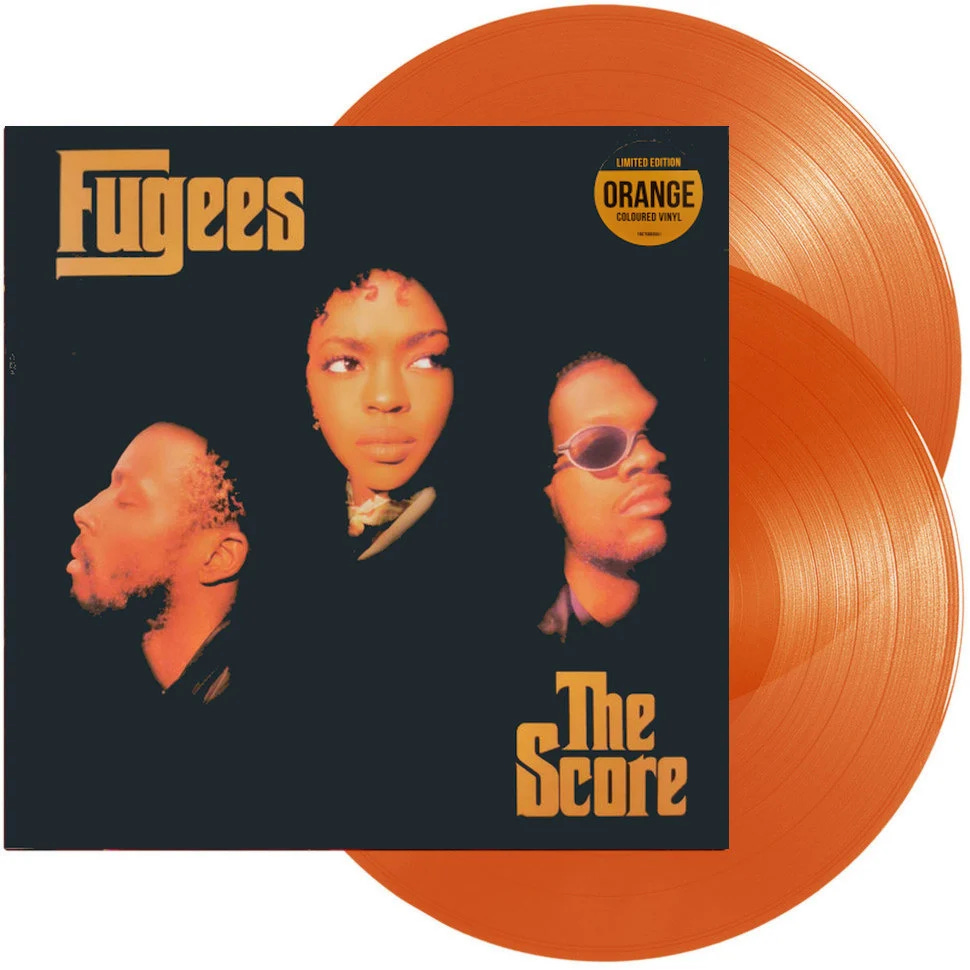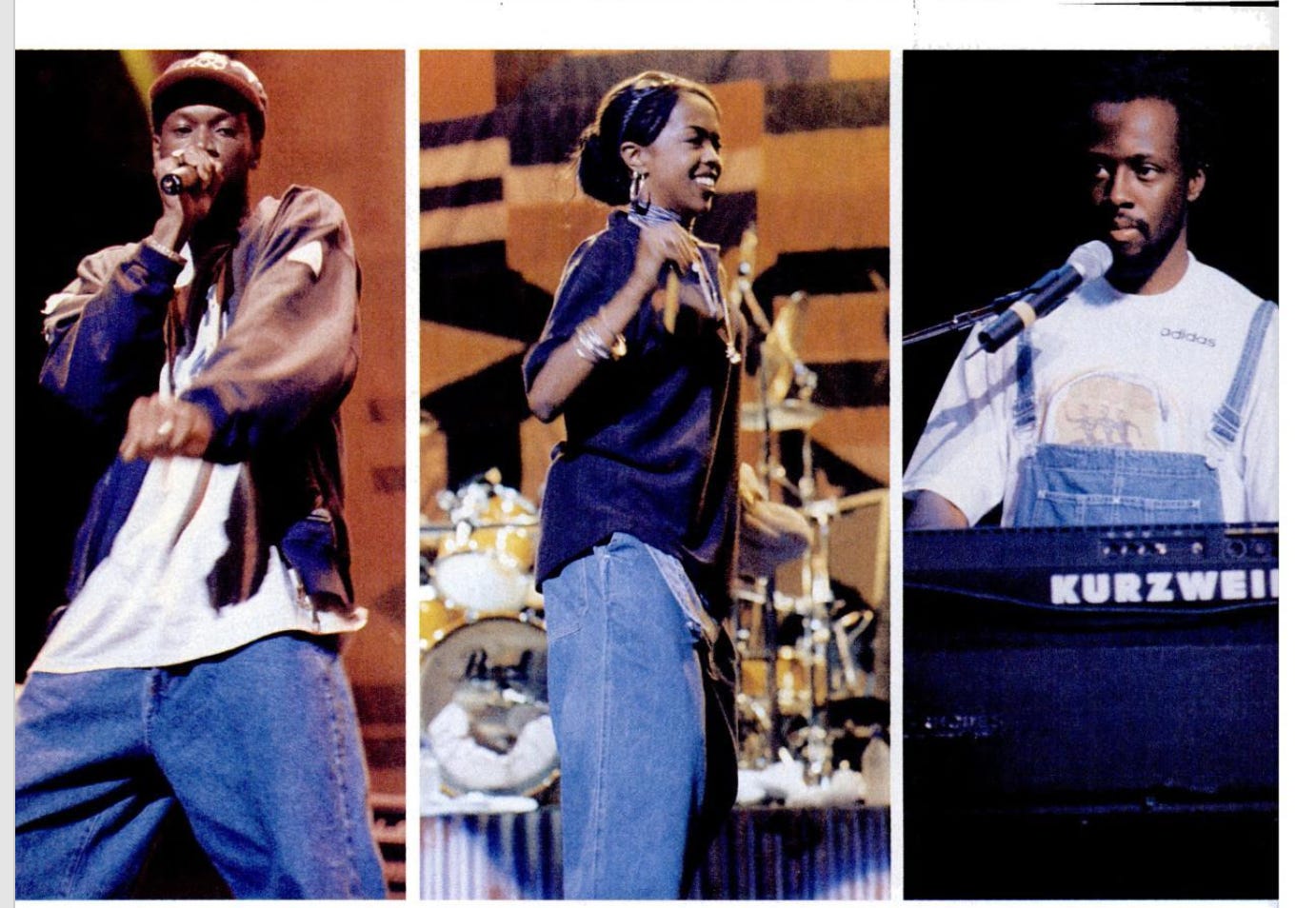Fugees - The Score: A deep dive into the history and creation of a certified hip-hop classic
Read how the Fugees album The Score, one of the most successful hip-hop albums ever, almost never got made.
I don’t think Fugees need much of an introduction. They were huge in the mid-1990s and almost 30 years later, their pioneering blend of hip-hop, reggae, R&B, and funk is still unmatched.
Their sound was so unique because they were too. I’m speaking in the past tense here, not because they are no longer unique individuals, but because after ‘The Score’, they never released another project together.
And, turns out, it was pretty close or this album wouldn’t have ever been made.
Crazy right? But that’s not the only thing that’s crazy about the creation of this album. It involves a failed debut project, a complete overhaul of their sound, Fat-Joe, a basement, and somehow, a rant from the mayor of Newark, New Jersey.
So, let’s dive into some of the history and stories behind one of the most successful hip-hop albums ever made.
Members of the Fugees
The Fugees consist of Ms. Lauryn Hill, Wyclef Jean, and Pras Michel.
Lauryn Hill and Pras first met at Columbia High School, in Maplewood, New Jersey, and Wyclef Jean is Pras’ cousin.
In a 1996 documentary, Pras boldly claims that it all started with him. Lauryn quickly jumps in to add some context.
“The real story is, he was like the big man, you know what I’m saying, in high-school. And he wanted to put two cute girls in a group behind him, so that he could look like the man” – Lauryn Hill, Fugees Documentary
One day, Pras invited his cousin Wyclef to the studio, and not much later the collective was born.
What does the name Fugees mean?
The name Fugees was derived from Refugees. The name is actually a true emblem of its time, as the formation of Fugees happened in the midst of the Haitian refugee crisis in which the US played a big part.
Both Pras and Wyclef have a Haitian background, Lauryn was born in New Jersey to American parents. However, The guys called her "Haitian by association".
The name Fugees wasn’t just meant to elevate the status of refugees and migrant communities. According to Pras, the name also refers to the group seeking refuge through their music.
We were like, let’s use Refugees, and we took the ‘re’ out, kept ‘fugees’. Like, refugees in the sense of seeking refuge through our music.” – Pras, Fugees Documentary
Before there was a score to settle
Before diving into the album we all know and love, it’s good to mention their not-so-successful debut album, as it’s important for context.
When did the Fugees come out?
In 1993, Fugees signed to Ruffhouse, distributed through Columbia Records. And released their debut album Blunted On Reality.
While the album already fused elements of political hip-hop, jazz and neo soul, it failed to impress. Listening to their first single, you can’t help but notice this sounds very different to what Fugees are known for today.
“Ultimately, Blunted on Reality catches the group still finding itself, and some awkward rapping by cousins Wyclef Jean and Pras makes the record more about promise than actualization” – The new Rolling Stone album guide
In this interview by Roberta Flack (yes, the one and the same), Lauryn Hill reflects on the less successful debut project and addresses it head on.
“We were a lot younger when we did that album. It’s basically our demo tape, you know? I was, like, sixteen and Clef was, like, twenty-one. We was babies. But, you know, when you’re young and you wanna get on, you give up some of your creativity to the people who have the money to make things happen. So a lot of our sound was, in fact, intertwined with the sound of the production company. It wasn’t necessarily us.” –Lauryn Hill, Roberta Flack interview
In fact, if it wasn’t for a few unorthodox remixes by producer legend Salaam Remi, Fugees would’ve been dropped from the label, and the classic and Grammy-awarded album “The Score” wouldn’t have been made.
So, who’s Salaam Remi and how did he help?
To understand the next part of this story, it is vital to know about producer Salaam Remi. And this amazing video is a great way to do just that.
Where many producers are known for a specific type of sound, producer Salaam Remi has a different specialty, he helps artists find their signature sound.
“I ask artists different things when I meet them. I ask what songs moves them. What’s the thing that you hear that makes you want to write? Because I feel like, I’m cooking for you, but if I don’t know what your taste is, how can I chef it?” – Salaam Remi, NPR music
How Fugees found their signature sound
Salaam Remi found a way to create a sound that reflected Fugees’ personality and highlighted their individual strengths.
“My involvement with Fugees, was that I did a remix of Nappy heads and then also Vocab, the singles of their first album and kinda helped get them in the pocket.” – Salaam Remi, Hot97, Timeless: The Making of Fugees 'The Score'
Compare the original version of Nappy Heads with the remix and you can hear how the remix sounds way more like the Fugees we all know and love today, as opposed to the original version.
The original version
The remix
Fugees were almost dropped
In this Hot97 documentary, John Forte, recording artist and co-producer of The Score, mentions how close Fugees got to being dropped and how the success of the Nappy Heads remix convinced the label to give Fugees another chance and allowed them to create a second album.
“They were very close to getting dropped. But then the Nappy Heads remix came out, and I remember when Lauryn called me, they were on the road, and she said the Nappy Heads remix is doing well. Sony wants us to do one more album.” – John Forte, Hot97, Timeless: The Making of Fugees 'The Score'
According to an interview in ‘Check the Technique: Liner Notes for Hip-Hop Junkies. The Fugees received a second chance, a $135,000 advance from the label, and complete artistic control for a follow-up album.
The basement
The group used the money from the advance to invest in recording equipment and to set up a studio in Wyclef Jean's uncle’s (Jerry "Wonda" Duplessis), basement, which they referred to as the “Booga Basement”.
“The basement wasn't even like luxurious or a big studio. It was you know just a studio that was heartfelt and earnest…and by that I mean small” – John Forte, recording artist and co-producer of The Score.
This Hot97 video goes back to the remnants of the Booga Basement, and it’s great to see the small and humble place where they created a globally celebrated album.
Fu-Gee-La as the blueprint
The lead single of their album, was created before production officially began on the Score.
And…Producer Salaam Remi had originally made that beat for Fat-Joe.
“Wyclef was like, “Yo, play that beat you did for Fat Joe!” And Lauryn was like, “Yo, play the Fat Joe beat!” and then when I played it, Clef jumped up and spit the first verse to “Fu-Gee-La.” He had the verse, but it just fell all together and then we worked on it. That song was actually done prior to The Score, so a lot of The Score’s vibe was based around what that song was. But you know, once again, it was just about seeing someone not for what their recording says, but for what their potential is in the room and helping them realize that. But even within that, my job in that case, as with most of the artists I’ve worked with, has been to help them unlock their own creativity.” –Salaam Remi, HipHopDX interview (2014)
It’s crazy to think how different things would’ve played out if Wyclef and Lauryn hadn’t asked Salaam for that beat at that moment. Fu-Gee-La wouldn’t have been made, The Score wouldn’t have had its productional blueprint, and who knows what would’ve happened if Fat-Joe had rapped over it.
But in that split second, the conditions were set for history to be made.
Fugees - The Score
The Score was released on February 13, 1996. The album was a massive commercial success out of the gate.
It topped the Billboard charts for weeks, received a Grammy nomination for album of the year, and won the Grammy for best rap album.
What does the title ‘The Score’ mean?
In my opinion, the title of this Fugees project is so well-chosen, it’s almost ridiculous. It completely captures their vibe, journey, and message, and is used in more than one way throughout the project.
Lauryn Hill was the one who came up with the title.
“I came up with The Score because I thought it was powerful and metaphorical, and it was just right on target ’cause we had a couple of scores to settle” – Lauryn Hill, Roberta Flack interview
At the time, she felt that they needed to settle the score on the ongoing debate about the inconsistencies between the first album and the remixed singles.
However, there’s a lot more to the project’s title. A score can also refer to a film score – the original music that accompanies a movie. And Fugees used this as a theme throughout their project.
Did you ever notice how the cover font looks like The Godfather?


Also, all three music videos were inspired by –and shot as if they were– movies.
Fu-Gee-La
In this video, the Fugees wanted to recreate Jimmy Cliff's film The Harder They Come (1972). This is a classic film where a young Jamaican man who wishes to become a successful Reggae singer, finds himself tied to corrupt record producers and drug pushers and starts to fight back.
Ready or Not
This video looks like a proper Jerry Bruckheimer mid-nineties action movie. It featured helicopters, explosions, jet skis, and submarines. In fact, according to Vibe, it was this video that helped usher in the era of bank-breaking, movie-like hip-hop videos.
The group felt that this video was the most challenging to make.
“Creating that video was like being in the military for three days. I want the world to know I don’t swim, and I suffered.” – Wyclef Jean, Fugees documentary
Killing Me Softly With His song
The third and final video, while inspired by the 1975 movie Cooley High, is a little different as it was meant as the last video of the project.
“We wanted to use it as a tool in the whole concept of bringing all the videos together. With the whole score concept because we were sitting in a theatre. So we're going to insert pieces of all our other videos in and it’s us watching ourselves. And the whole object was that we were in the audience watching ourselves, like to basically let people know that there is no difference, we are no different than anybody else” – Lauryn Hill, Fugees Documentary
A cinematic spoken word intro
“Colombia Ruffhouse Records present
A Refugee Camp production
Fugees, The Score
…And now for our feature presentation”
Did you ever pay attention to the spoken-word intro to the album?
It sets the scene perfectly with a passionate rant incorporating various track titles from the album while critiquing society, critics, and record labels, and taking matters into his own hands to settle the score once and for all.
“Jokers running around, like, with masks on”
“Trying to be cowboys, they can't even shoot
Trying to be gangsters, but when the beast come on the motherfuckin' block, everybody break out”“We gon' settle the score, once and for all. I ain't gon' sit around and let jokers kill me softly, kid”
“I got power, I got a family.
I got family business on Avon, on Chancellor, on Prince Street”“And all of these zealots out here (Man)
Tryna steal and tryna bite and take what I got”“And my girl, we gon' go out together
She gon' be a soldier, kid.“'cause if you ain't ready now, you ain't never gon' be ready"
What makes it great, is that the rant is a cohesive story that matches that of the album.
But what makes it really crazy is that the artist who wrote and recorded this, Ras Baraka, became, and still is today, the Mayor of Newark, New Jersey.
“With a forward-thinking agenda that reduced crime to its lowest levels in five decades, addressed affordability while maintaining steady growth, lowered unemployment, returned local control of schools after more than two decades, and replaced all 23,000 known lead service lines in less than three years at no cost to residents, Baraka has defied expectations since taking office in 2014.” –City of Newark
My favorite verse
In my opinion, Lauryn Hill stands out the most across the project. Whether she’s singing or rapping, she runs circles around Wyclef and Pras.
And that’s not me saying Wyclef and Pras aren’t respected members of the group. Not at all.
That’s me saying that Lauryn Hill was just such an exceptional and versatile MC. Her verse on How Many Mics –which comes directly after the intro–, lets you know she means business from the get-go.
“…You use that loop over and over
Claiming that you got a new style, your attempts are futile
Ooh, child,
you puerile, brain waves are sterile
You can't create, you just wait to take my tapes.
Laced with malice,
hands get calloused
From gripping microphones from here to Dallas” – Ms. Lauren Hill.
The way Lauryn rhymes “futile” with “ooh child” gets me every time. It’s so smooth, powerful, and braggadocios. It hits home, especially because on this album, Fugees finally got the chance to showcase their ability of creating something truly amazing.
They settled the Score nearly 30 years ago and didn’t even have to make another record ever again.
I hope you enjoyed reading this post as much as I enjoyed writing it. If you don't want to miss out on any future posts, please consider becoming a free subscriber by clicking the button below.





